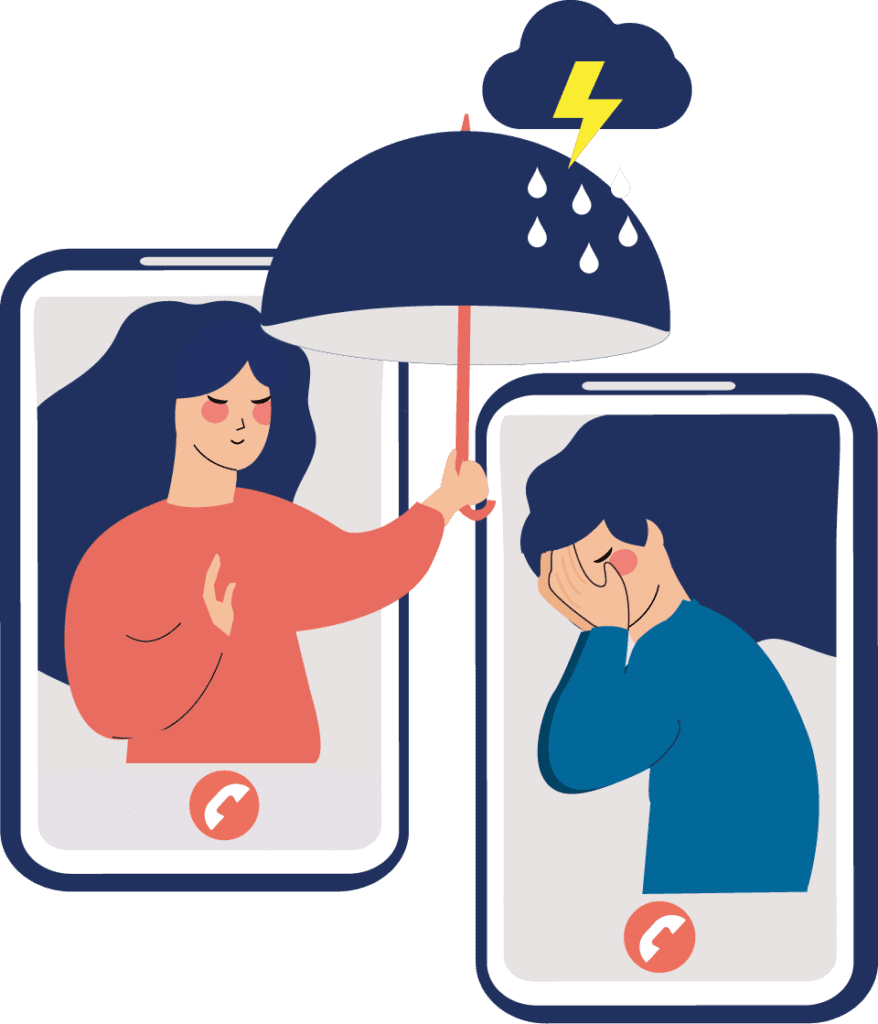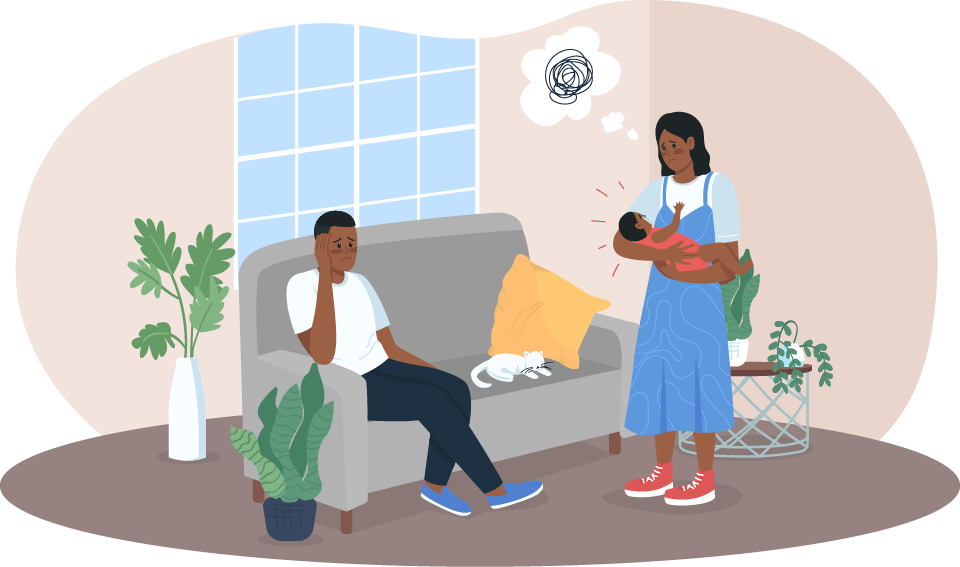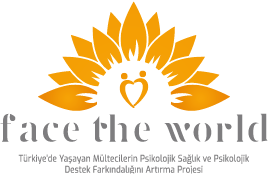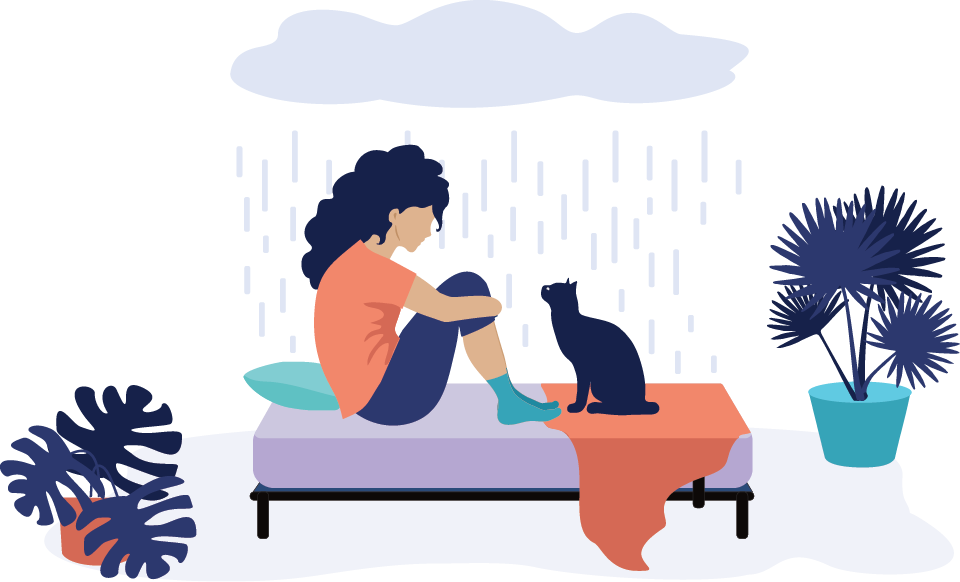What is Depression?
- Depression is usually defined as a mental health problem that involves a persistent feeling of sadness, inability to complete daily tasks, and loss of interest or pleasure in activities once enjoyed.
- Symptoms must last at least two weeks.
- There are certain factors that distinguish depression from being in low spirits or low mood occasionally. The factors in question are listed below:
- A persistent feeling of dejection, sadness, and unhappiness
- A sense of pessimism about the future, feeling worthless and inadequate within a society, feeling a deep helplessness about his/her situation, considering suicide as the only way out in the worst-case scenario
- Unexplained chronic physical pains, sleep disorder and loss of appetite
- Depression is a mental health problem, not being weak-willed
The Symptoms Could Include the Followings
- Loss of energy
- Significant decrease or increase in appetite
- Trouble sleeping or sleeping too much
- Difficulty in concentrating
- Physical pains such as headaches or back pains that do not have a specific cause
- Feeling restless, worthless, guilty, and desperate
- Feeling useless
- Thinking that life has no meaning, and nothing will go right
- Thoughts of self-harm and suicide

Bear in mind that!
- Depression is a condition that anyone can experience.
- The treatment process includes psychotherapies and use of medication, or a combination of both.
- Depression can be treated. The decision on which treatment is best depends on duration and severity of the depression.
- You are not alone and helpless! You can get better by talking about with someone or by getting professional help.
- Support of caregivers and family facilitates the recovery from depression.
- If you are living with someone suffering from depression, you can support his/her recovery period by way of offering correct guidance.
What Can You Do About It?
- Genel olarak enerjisiz hissediyorsanız bir doktora görünüp kan değerlerinize baktırın.
- Güvendiğiniz biri ile duygularınızı konuşun.
- If you experience a constant lack of energy, see a doctor, and have your blood values checked.
- Open up to someone you trust about the feelings you are experiencing.
- Seek professional help from a mental health professional.
- Maintain your ties with your family and friends.
- Make time for exercise every day, even if it is just a short walk.
- If you are having suicidal thoughts, immediately contact your family, loved ones and/or mental health professionals to seek help.

Postpartum Depression
- The birth of a baby can trigger a jumble of powerful emotions, from excitement and joy to fear and anxiety. But it can also result in something you might not expect – depression.
- Most new moms experience postpartum symptoms after childbirth, which commonly include mood swings, crying spells, anxiety and difficulty sleeping. These symptoms typically begin within the first two to three days after delivery and may last for up to two weeks.
- However, some new moms[EJ1] experience a more severe, long-lasting form of depression known as postpartum depression.
- Postpartum depression isn’t a character flaw or a weakness. Sometimes it’s simply a complication of giving birth.
- If you have postpartum depression, prompt treatment can help you manage your symptoms and help you bond with your baby.
- Postpartum depression can be mistaken for the effects of hormones at first, but the signs and symptoms are more intense.
- Postpartum depression lasts for a long period and may eventually interfere with your ability to care for your baby and handle other daily tasks.
- Symptoms usually develop within the first few weeks after giving birth, but may begin earlier (for example, during pregnancy) or later (for example, up to a year after birth).
Postpartum depression signs and symptoms may include:
- Depressed mood or severe mood swings
- Excessive crying
- Difficulty bonding with your baby
- Withdrawing from family and friends
- Loss of appetite or eating much more than usual
- Inability to sleep (insomnia) or sleeping too much
- Overwhelming fatigue or loss of energy
- Reduced interest and pleasure in activities you used to enjoy
- Intense irritability and anger
- Fear that you are not a good mother
- Hopelessness
- Feelings of worthlessness, shame, guilt and inadequacy
- Diminished ability to concentrate or make decisions
- Restlessness
- Severe anxiety and panic attacks
- Thoughts of harming yourself or your baby
- Recurrent thoughts of death or suicide
Bear in mind that!
- If untreated, postpartum depression may last for many months or longer.
- Postpartum depression is quite common, it is highly important to seek help if your signs and symptoms do not fade after 2 weeks.
What Can You Do About It?
- Open up to those you trust about the feelings you are experiencing and seek their help.
- There are many other women who go through the same process as you and experience similar feelings. Talk to people you can seek advice from or share your experiences with.
- Spend time with your loved ones and family members.
- Connect with the outer world and stay in touch with your social circle.
- Go on short walks with your baby or by yourself.
- Share with your doctor the feelings and the physical challenges you experience.
- If you are having thoughts of harming yourself or your baby, seek help from your loved ones, doctor and/or mental health professionals.
If you want to benefit from our mental health services, you can apply to the nearest ASAM office for further information. Interviews are held free of charge and in accordance with the principle of confidentiality.


